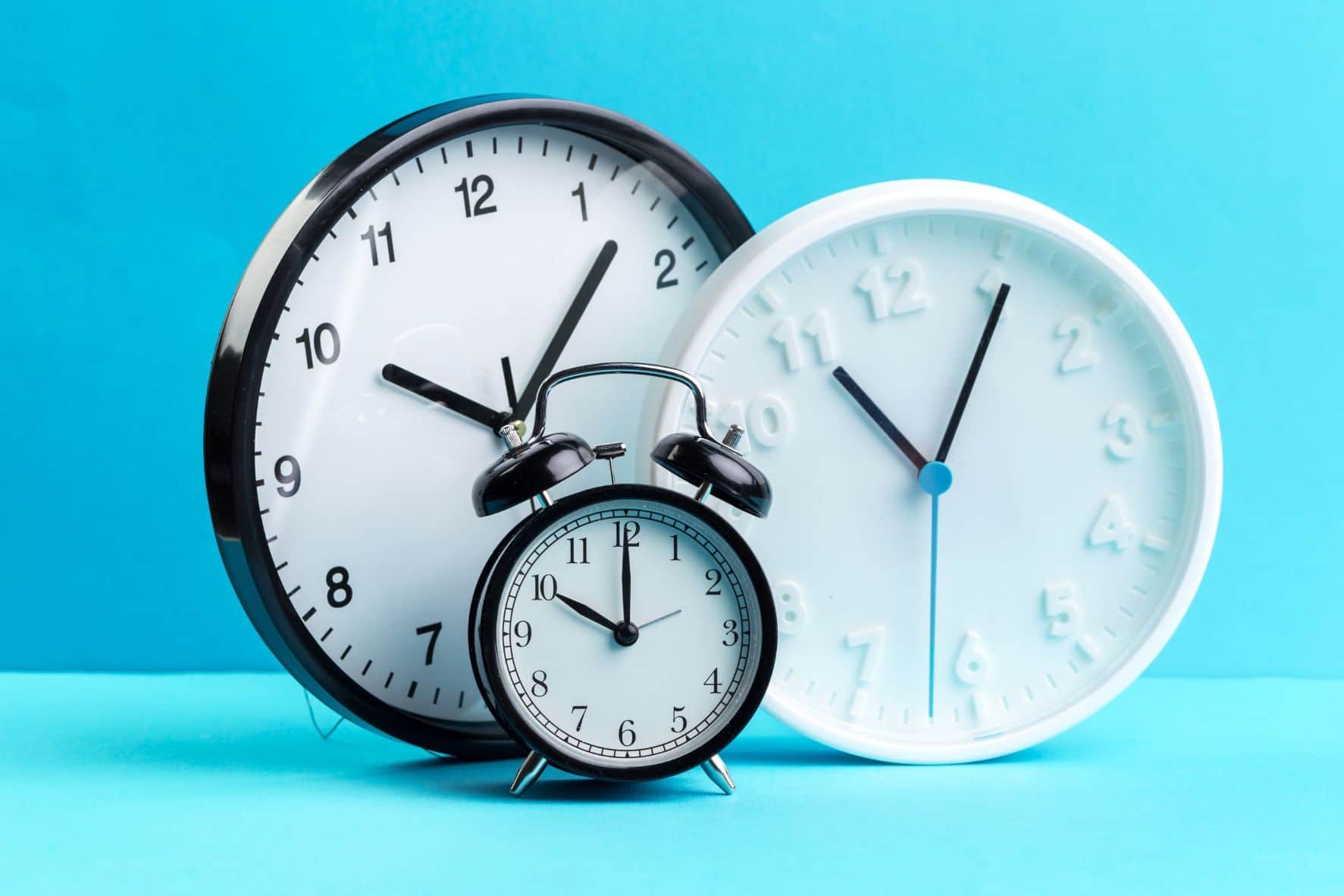Daylight Saving Time[1] has been a clock-changing ritual for most Americans and Canadians for over 100 years. We spring forward an hour the first Sunday in April to kick off longer sunlit days then on the first Sunday in November we fall back an hour to Standard Time.
Most residential clocks are digital nowadays, so they automatically adjust to daylight saving time changes. Although we have fewer manual adjustments, it’s still a hassle. The time clocks, however, are not the problem.
Two clocks powered by nature, the sun clock and our biological clock, have profound effects on how our body works and functions. For example, sleep, bowel movements, hormone production, and menstrual cycles depend on the body’s internal clock. These are the clocks that are not so easily adjusted.
Three Clocks Matter When We Change the Time
TIME CLOCK
The proper, socially agreed upon time according to Greenwich Mean Time (GMT) and our all-knowing smart phones.
SUN CLOCK
Determines when the sun is at its highest point of the day, when it rises, and when it sets.
BIOLOGICAL CLOCK
The innate mechanism inside our bodies and every cell that regulates Circadian rhythm.
The key to our biological clock is the sun clock. Changing the time clock has no effect on when the sun rises and, consequently, our internal clock doesn’t just change with a snap of the fingers. Our biological clock will be out of sync for about a week after we artificially change the time. But Mother Nature is brilliant, and we will naturally re-calibrate within about a week.
Health Hazards & Daylight Savings Time Change
It’s easy to think that losing an hour is bad and gaining an hour good but don’t be fooled. The time change in either direction poses health risks for about a week afterwards. More heart attacks[2] and traffic accidents[3] occur especially on Mondays immediately following the Spring time change. Many people also report mood disorders and mild depression.
The American Academy of Sleep Medicine takes the matter seriously and issued a Daylight Saving Time Health Advisory[4] stating that
“Moving into or out of DST has unfavorable effects on sleep/wake patterns that last roughly 5-7 days.”
The advisory further warns,
“When performing activities that require maximal alertness, individuals also should exercise particular caution for at least 7 days following DST changes.”
Lost Hours of Sleep Happen Often
For those of us who live in places that recognize DST, the time only changes twice a year. Yet we lose an hour or more of sleep more often because of stress, worries, and television. We also deceive our biological clocks with artificial light extending the daytime into night when we should be preparing for rest mode all of the time.
Whether it’s losing an hour because of the time change or other reason or more chronic and serious sleep deprivation, there are notable health consequences when we don’t get enough quality sleep.
Make a Plan Before Spring/Fall Time Changes
Plan the week before the time change to mitigate the negative effects and adjust to the new time easier. Here are some tips for the week before the time change:
- Get early sunlight daily.
- Turn off bright ceiling lights and use dim, indirect light after sunset.
- Go to bed and wake up on a consistent schedule.
- Set an alarm for bedtime so you don’t stay up too late.
- Don’t think you can stay up later with extra hour from the time change.
- Take your vitamins and supplements consistently.
- Stay hydrated all day for better sleep at night.
- Avoid junk food.
Just for Fun!
Take our Daylight Saving Time Quiz
Find out how much you know about the current state of Daylight Saving Time with our quiz. Click here and test your knowledge.
[1] Also commonly called Daylight Savings Time
[2] https://www.mdpi.com/2077-0383/8/3/404/htm
[3] https://pubmed.ncbi.nlm.nih.gov/11152980/
[4] American Academy of Sleep Medicine, https://aasm.org/advocacy/position-statements/daylight-saving-time-health-advisory/

